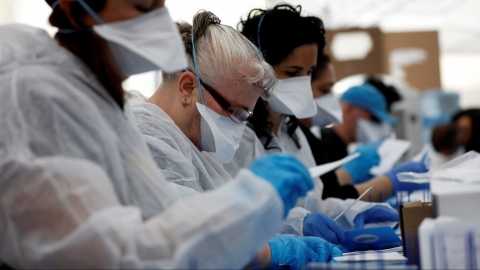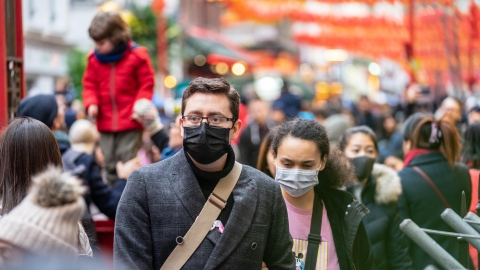For six consecutive days, Vietnam has reported no new COVID-19 cases; the WHO highly praises Vietnam.
On the morning of April 22nd, the National Steering Committee for COVID-19 Prevention and Control announced that no new COVID-19 cases were recorded. This marks the sixth consecutive day without any new cases in Vietnam.
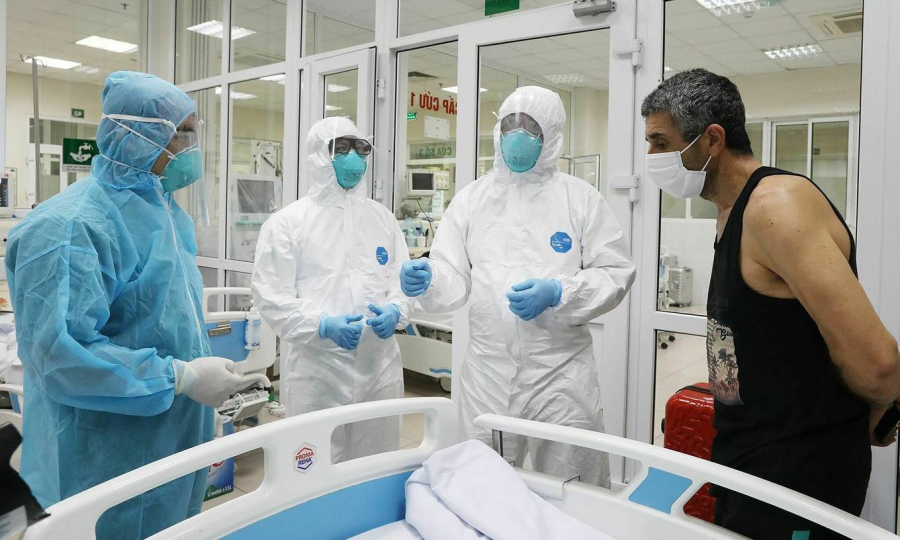
The total number of COVID-19 cases in Vietnam is 268, and to date, 216 have been declared recovered. It is expected that an additional 6 patients will be declared recovered on April 22nd. Of the 52 cases currently under treatment, 12 have tested negative for SARS-CoV-2 once, and 8 have tested negative twice.
Regarding Vietnam's COVID-19 response, the WHO Director for the Western Pacific commented: "Vietnam has shown the world effective, decisive, and consistent leadership across multiple levels of government, from the Prime Minister and ministers to local authorities." According to WHO statistics, Vietnam currently has the second lowest COVID-19 infection rate per capita in the Western Pacific region, with a rate of 3 cases per 1,000,000 people.
Vietnam donates a large amount of medical equipment to Laos to combat the COVID-19 pandemic.
On the afternoon of April 21st in Hanoi, the Central Committee of the Vietnam-Laos Friendship Association mobilized its members, organizations, and philanthropists to donate 500 sets of medical protective clothing and 18,500 face masks, including 17,000 medical masks and 1,000 antibacterial fabric masks, to support doctors, nurses, and the people of Laos.
Hai Phong allows 9th and 12th grade students to return to school from April 23rd.
The People's Committee of Hai Phong City has allowed junior high school students (grades 9 and 12) to return to school from April 23, 2020; preschool children, primary school students, junior high school students (grades 6, 7, and 8), and high school students (grades 10 and 11) will return to school from April 27.
Quang Ninh proactively manufactures equipment for COVID-19 prevention and control.
These initiatives and innovations have both reduced the pressure on budget investment and helped units and localities proactively equip themselves with on-site supplies for COVID-19 prevention and control. The Foreign Trade University (Quang Ninh campus), along with its faculty and students, has also manufactured hundreds of face shields for COVID-19 prevention and control. Recently, on April 17th, the university donated 700 face shields to the People's Committee of Uong Bi City.
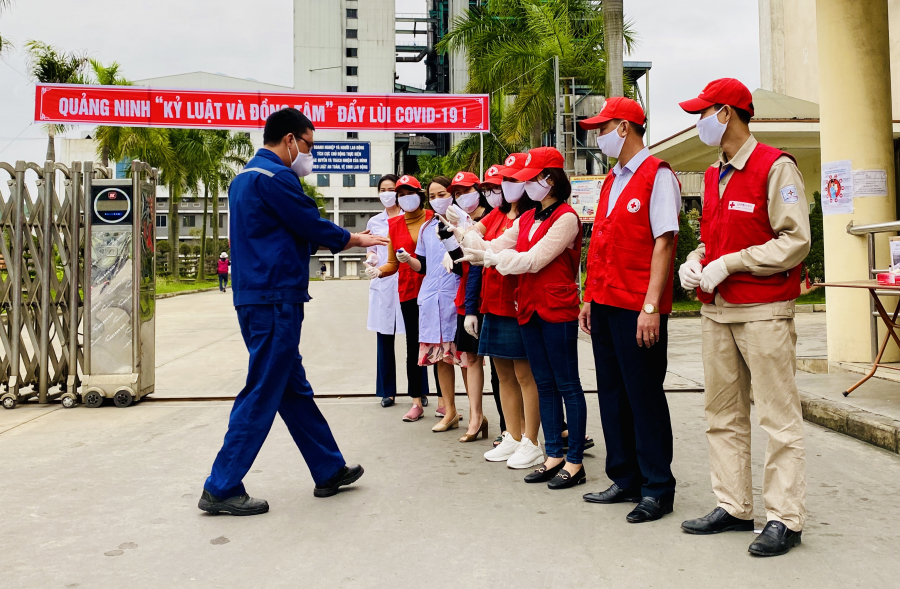
The College of Industry and Construction (Uong Bi) has successfully researched, invented, and installed dozens of disinfectant sprayers, body temperature measuring devices, and full-body disinfection chambers. Several coal production units under the Vietnam Coal and Mineral Industry Group have also joined forces, designing full-body disinfection chambers to serve their COVID-19 prevention and control efforts.
The evolution of the Covid-19 pandemic in Southeast Asia.
The Indonesian Ministry of Health announced on April 21 that the country had recorded 375 new cases of the SARS-CoV-2 virus, which causes COVID-19, bringing the total number of cases in the Southeast Asian nation to 7,135. Also on April 21, President Joko Widodo decided to ban all people from returning to their hometowns during the Idul Fitri holiday to prevent the spread of the virus.
Given the complex developments of the COVID-19 pandemic in Singapore, Prime Minister Lee Hsien Loong has decided to extend the social distancing measures for another four weeks, until June 1st. The Singapore Ministry of Health reported 1,111 new cases on April 21st, bringing the total number of infections in the island nation to 9,125. The majority of new cases are in housing for foreign workers, and many are asymptomatic. Meanwhile, the number of community transmissions with unknown sources remains above 20 cases per day after two weeks of social distancing.
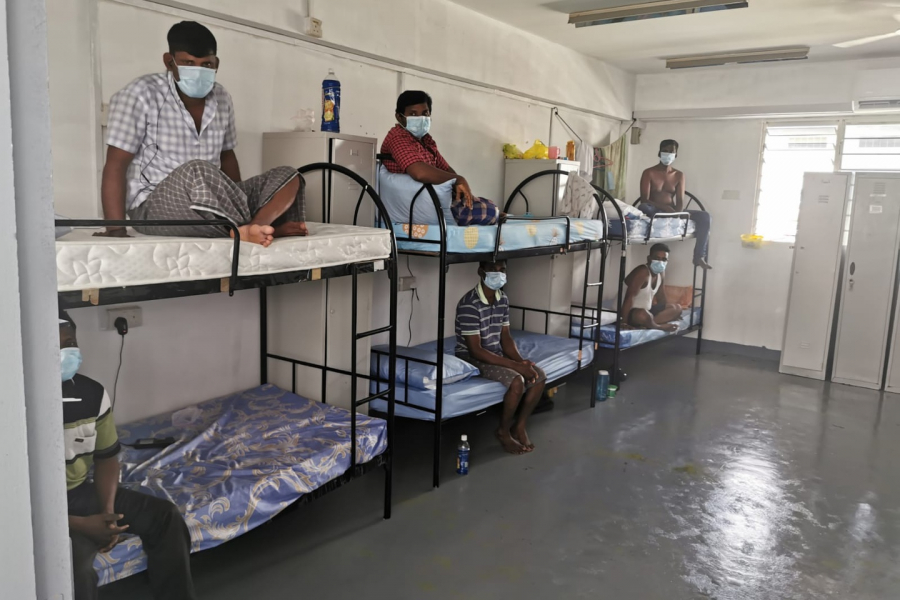
On the same day, the Philippine Department of Health reported nine additional deaths due to COVID-19, bringing the total number of deaths in the country to 437. Meanwhile, the Philippines recorded 140 new cases of SARS-CoV-2 infection, raising the total number of infections in the country to 6,599.
In addition, on April 21st, Thailand continued to record positive signs in the fight against the COVID-19 respiratory disease. Accordingly, in the past 14 days, 36 out of 77 provinces and cities nationwide have reported no new cases. The Thai government's Center for COVID-19 Situation Administration (CCSA) stated that on April 21st, the country recorded one additional death and 19 new infections, the lowest daily figures in over a month.
Thailand automatically extends visas for foreigners until July 31st.
On April 21, the Thai government approved the automatic extension of visas for foreigners for another three months in an effort to prevent long queues at immigration centers and curb the spread of COVID-19. A Thai government spokesperson said that foreigners whose visas expired from March 26 onwards will be allowed to stay in the country until July 31 without having to apply for an extension.
The number of COVID-19 cases in Türkiye continues to rise sharply.
On April 21, Turkish President Tayyip Erdogan announced that the COVID-19 pandemic in Türkiye was beginning to peak and that Türkiye aimed to return to normal life after the end of Ramadan in late May. Prior to this, President Erdogan announced a four-day lockdown would be imposed on 31 cities starting April 23.
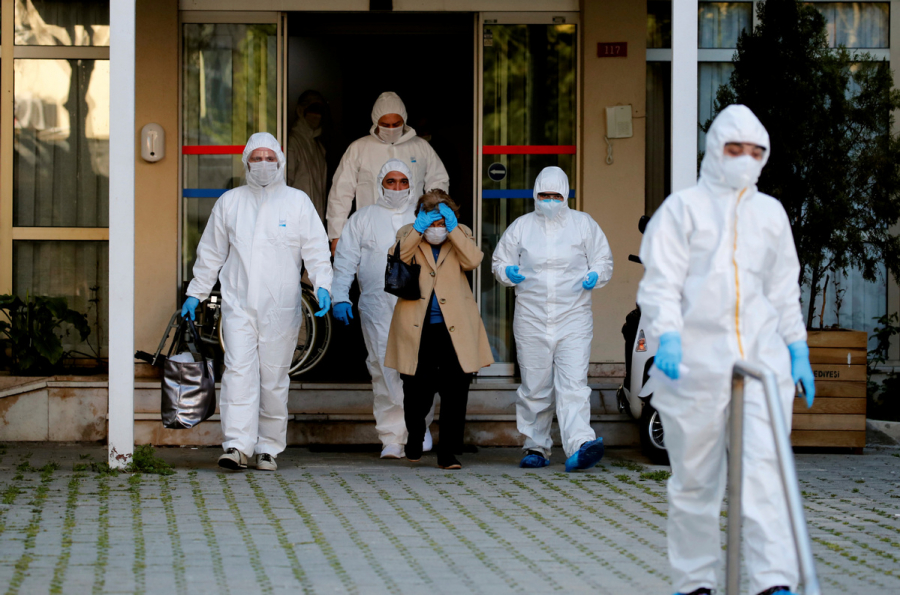
In the past 24 hours, the number of new coronavirus infections in the country has increased by 4,611 cases, bringing the total number of COVID-19 cases to 95,591. The death toll now stands at 2,259 after 119 more deaths due to COVID-19 were recorded on April 21.
Israel imposes a nationwide lockdown on Independence Day.
Israeli Prime Minister Benjamin Netanyahu ordered a nationwide lockdown on April 21st for Independence Day, which falls on April 28th. The lockdown will affect Israel's National Day of Remembrance, as cemeteries will be closed and relatives of those killed in the wars will be prevented from visiting graves.
During the lockdown, people will be prohibited from traveling between cities and will only be allowed to leave their homes to shop for essential items or go to work.
Some countries are gradually easing restrictions.
The governments of Spain, Austria, Cyprus, Australia, and several other countries are beginning to gradually ease COVID-19 restrictions and restart their economies.
On April 21, the Madrid city government (Spain) confirmed that the "BiciMAD" bike-sharing system would reopen to the public on April 22. Half of the bikes will be put into service on the morning of April 22, while the rest will be put into operation after being disinfected. Users will be required to wear gloves and adhere to hygiene and social distancing recommendations from health authorities. On the same day, the Pamplona city government in Spain announced the cancellation of the famous San Fermin bullfighting festival due to the COVID-19 pandemic.
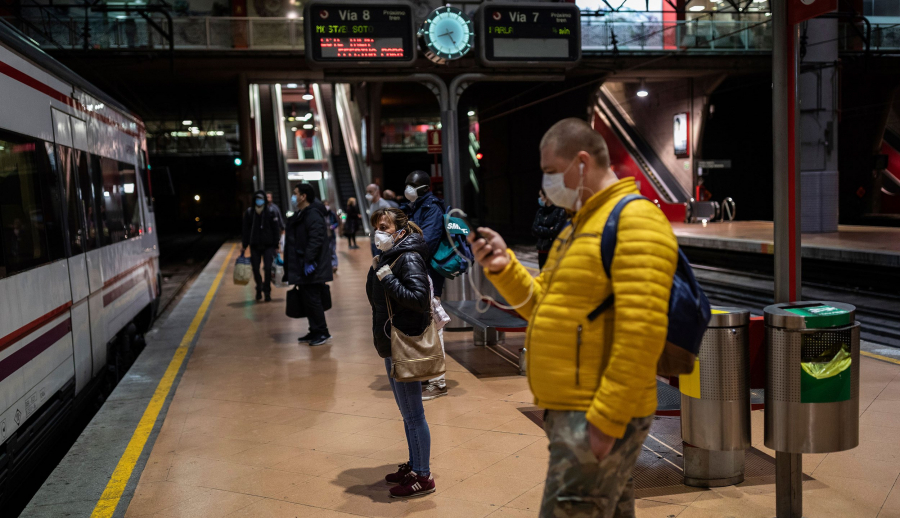
In the Republic of Cyprus, authorities have taken the first steps to ease COVID-19 restrictions and restart the economy. The plan is for restrictions, including a nighttime curfew, to remain in effect until April 30th.
On April 21, Austrian Chancellor Sebastian Kurz announced that lockdown measures due to the COVID-19 pandemic would be eased on May 15, allowing restaurants and cafes to reopen and religious services to resume.
In Asia, Iraq has allowed some businesses to reopen, easing a month-long curfew aimed at curbing the spread of COVID-19. Government offices can maintain a maximum of 25% staff, while some shops can reopen. Places where large crowds gather, such as shopping malls, parks, mosques, and schools, will remain closed. The easing of the curfew will last until May 22nd.
Australian Prime Minister Scott Morrison announced on the same day that the country was on the road to recovery as the number of new infections had virtually disappeared. He said hospitals would resume some non-emergency surgical procedures, and schools would reopen.
The EU is calling for a special conference to support the tourism sector.
The tourism sector, which contributes more than 10% of EU GDP and creates 12% of jobs, has come to a standstill due to travel restrictions and lockdowns aimed at preventing the spread of COVID-19. On April 21, the European Union's Commissioner for the Internal Market, Thierry Breton, called for a special summit to discuss solutions to help the European tourism industry overcome the difficulties caused by the COVID-19 pandemic in September or October 2020.
Switzerland to introduce COVID-19 vaccine into its immunization program in October.
Martin Bachmann, head of immunology at the University of Bern, affirmed that there is a chance of successfully developing a vaccine and hopes to be the first institution to produce a COVID-19 vaccine.
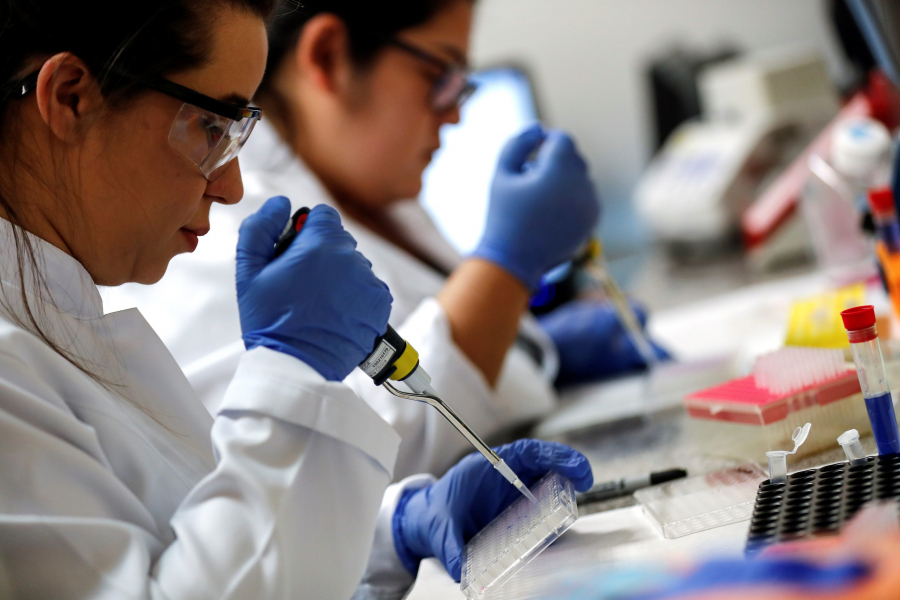
A team of researchers at the University of Bern (Switzerland) hopes to be the first to produce a vaccine against the dangerous COVID-19 disease and include it in the vaccination program by October. This vaccine takes a different approach by using what are called viral particles, which are non-infectious – unlike using viruses – and provide a good immune response.
Russia has recorded over 52,000 cases of COVID-19.
Russia's COVID-19 crisis response center announced on April 21 that the country had recorded an additional 5,642 cases of the novel coronavirus (SARS-CoV-2) causing COVID-19, bringing the total number of infections nationwide to 52,763. Moscow remains the region with the highest number of daily infections, with 3,083 cases.
Protests against the lockdown erupted across the United States.
The wave of demands to reopen the economy and protests against stay-at-home orders continues in many states across the US, despite the country having 792,938 COVID-19 cases and more than 42,000 deaths.
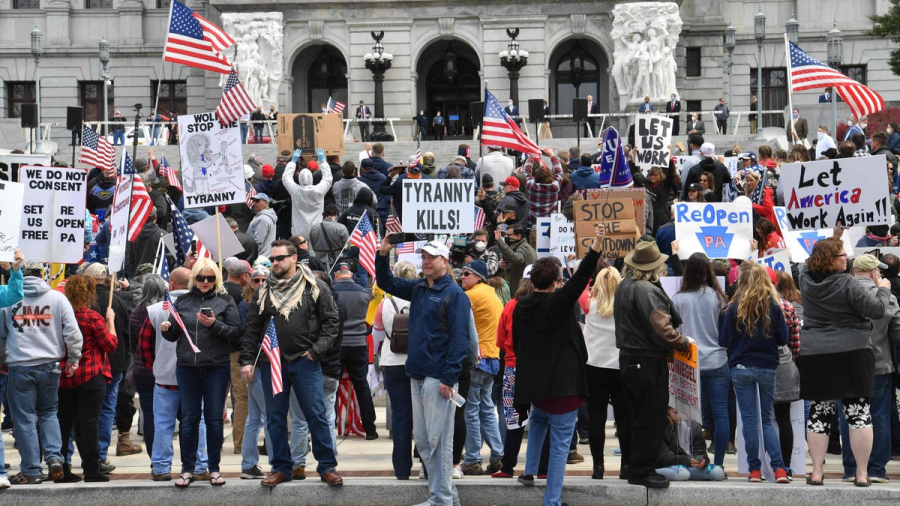
Currently, in the US, approximately 22 million people have lost their jobs due to business disruptions caused by the pandemic. Therefore, many want the lockdown lifted so they can return to work. Protests have taken place in many locations. Particularly in New York, the epicenter of the pandemic, protests have also occurred, but these are by healthcare workers demanding better protective conditions while fighting the pandemic.
Mexico declares COVID-19 a pandemic.
On April 21, the Mexican government declared that the COVID-19 outbreak had reached pandemic status in the country. Speaking to the press, health authorities predicted that the peak of the outbreak in Mexico would occur between May 8 and 10, and that the first cycle of the pandemic could end when 95% of cases are identified by June 25.
To prevent the spread of the disease, authorities are urging people to strictly adhere to preventative measures, stay home, avoid going out unnecessarily, and practice social distancing until May 30th. To date, Mexico has recorded 8,772 cases of COVID-19, including 712 deaths.

 VI
VI EN
EN
























